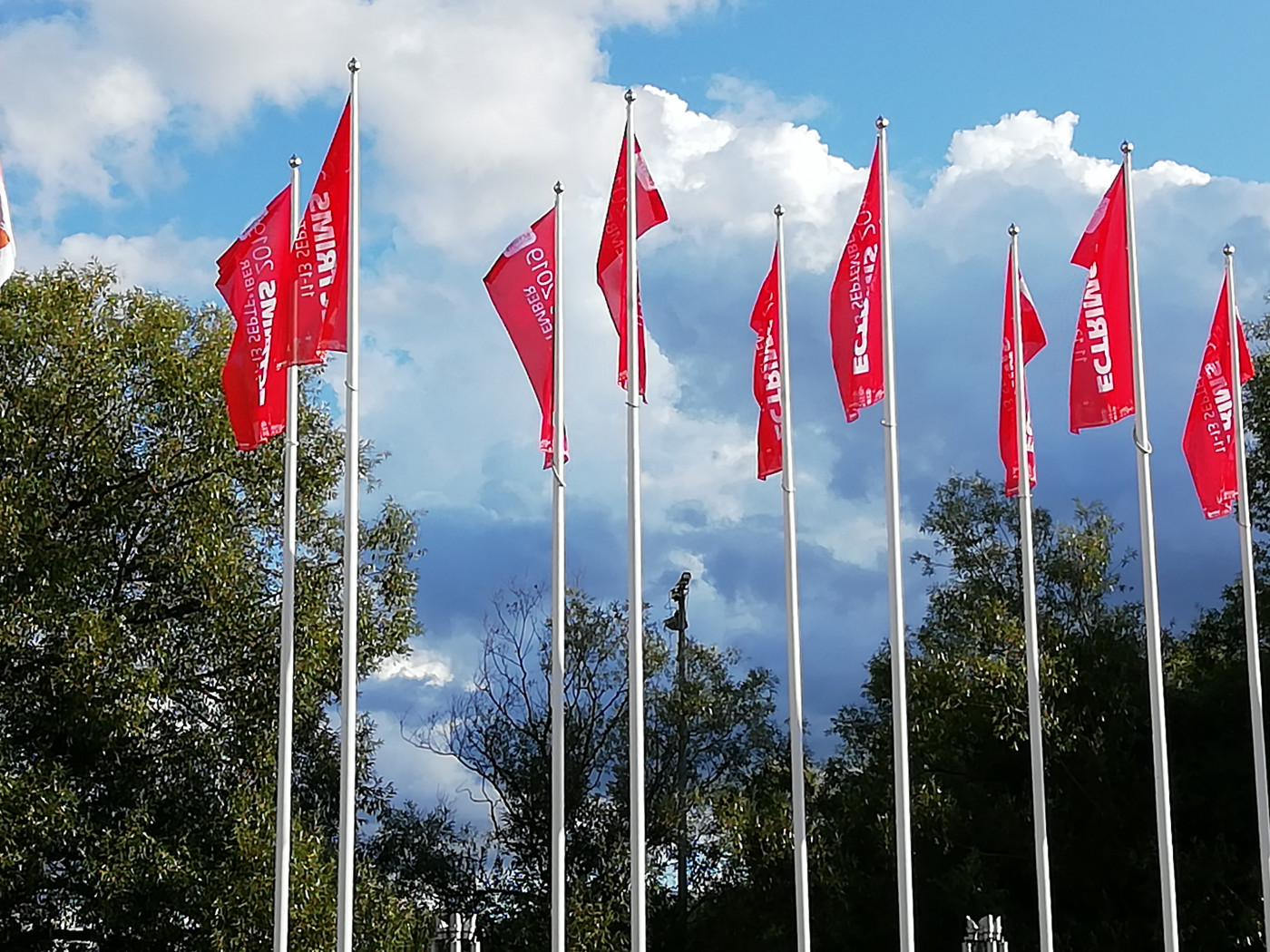#ECTRIMS2019 – Data Shows Ublituximab’s Long-term Safety in Relapsing MS, TG Therapeutics Announced
Written by |

#ECTRIMS2019
Ublituximab continues to be safe and well-tolerated by people with relapsing forms of multiple sclerosis (MS) after a median follow-up of 124.7 weeks — more than 2 years — according to data from an extension Phase 2 trial.
The data were shown in a poster titled “Long-term Follow-up Results from the Phase 2 Multicenter Study of Ublituximab (UTX), a Novel Glycoengineered Anti-CD20 Monoclonal Antibody (mAb), in Patients with Relapsing Multiple Sclerosis (RMS),” at the 35th Congress of the European Committee for Treatment and Research in Multiple Sclerosis (ECTRIMS), held Sept. 11-13 in Stockholm, Sweden.
Ublituximab, developed by TG Therapeutics, is a monoclonal antibody designed to target the CD20 antigen of mature B-cells, leading to the elimination of these immune cells from the blood and central nervous system. B-cells play a key role in MS development. According to the company, ublituximab has superior potency compared with current anti-CD20 antibodies, which may enable the use of lower doses and shorter infusion times.
The multicenter, placebo-controlled Phase 2 trial (NCT02738775) assessed ublituximab’s optimal dose, infusion time, safety, and tolerability in patients with relapsing MS.
All participants — 48 patients, mean age of 40 years — received ublituximab infusions or a placebo on days 1 and 15, and at week 24, and then were followed for 48 weeks.
To determine optimal dose and infusion time for ublituximab, B-cell depletion as well as safety and tolerability were compared among six dosing groups — 450 mg or 600 mg dose, and infusion times between one and four hours.
Prior results showed that ublituximab reduced B-cells by 99%, together with the full regression of MRI (magnetic resonance imaging) lesion, after only four weeks of treatment in people with relapsing MS.
Now, new data at week 48 showed that 93% of patients were relapse free (annualized relapse rate of 0.07), and 74% showed no evidence of disease activity (NEDA). In addition, no MRI lesions were detected at week 24 or 48.
These positive results were seen with a rapid infusion time — as low as one hour — and a dose of 450 mg ublituximab.
Further, new data from 45 patients followed for 124.7 weeks — the extension period of the trial — revealed that ublituximab continues to show good tolerability after more than 2.5 years. Adverse events linked with ublituximab treatment were considered rare, and did not lead to treatment discontinuation.
We are “highly encouraged by the Phase 2 long-term safety data demonstrating ublituximab continues to be very well tolerated with a median duration of follow-up of 124.7 weeks, and no discontinuations due to AEs [adverse effects] reported,” Michael S. Weiss, executive chairman and CEO of TG Therapeutics, said in a press release.
The rapid, one-hour 450 mg ublituximab infusion regimen also is being investigated in the ongoing Phase 3 ULTIMATE program, which includes the ULTIMATE 1 (NCT03277261) and ULTIMATE 2 (NCT03277248) trials.
Led by Lawrence Steinman, MD, at Stanford University, these trials aim to compare the efficacy and safety of ublituximab versus Aubagio (teriflunomide) — an MS-approved therapy marketed by Sanofi Genzyme — over 96 weeks of treatment in people with relapsing MS.
An update of the ULTIMATE trials also was presented at the ECTRIMS meeting, in a poster titled: “Study Design and Patient Demographics of the ULTIMATE Phase III Trials Evaluating Ublituximab (UTX), a Novel Glycoengineered Anti-CD20 Monoclonal Antibody (mAb), in Patients with Relapsing Multiple Sclerosis (RMS).”
The trials have completed their enrollment goal, with a total 1,094 participants recruited — 549 patients in ULTIMATE I, and 545 in ULTIMATE II.
All participants have been diagnosed with relapsing forms of MS. The majority (98-98.3%) were found to have relapsing-remitting MS (RRMS), while 1.7% to 2% were diagnosed with active secondary progressive MS (SPMS). The median age of patients in the ULTIMATE I trial is 36 years old, and in ULTIMATE II is 35 years.
“We are pleased to present the first look at the study design and patient demographics data from our Phase 3 ULTIMATE program. Importantly, the population enrolled appears consistent with a typical relapsing MS population, and similar to the patient populations enrolled in other CD20 Phase 3 trials,” Weiss said.
The primary aim of the ULTIMATE trials is to compare the annualized relapse rate among patients. Additional goals include evaluation of the number of lesions on MRI scans, and the monitoring of disease activity. The first results of the trials are expected by the second half of 2020.
“We look forward to continuing to follow our Phase 2 patients and to topline results from our Phase 3 trial in the middle to second half of 2020. If successful, we believe ublituximab will represent an important anti-CD20 treatment option for patients with relapsing MS that can be delivered in a convenient one-hour infusion every six months,” Weiss concluded.


